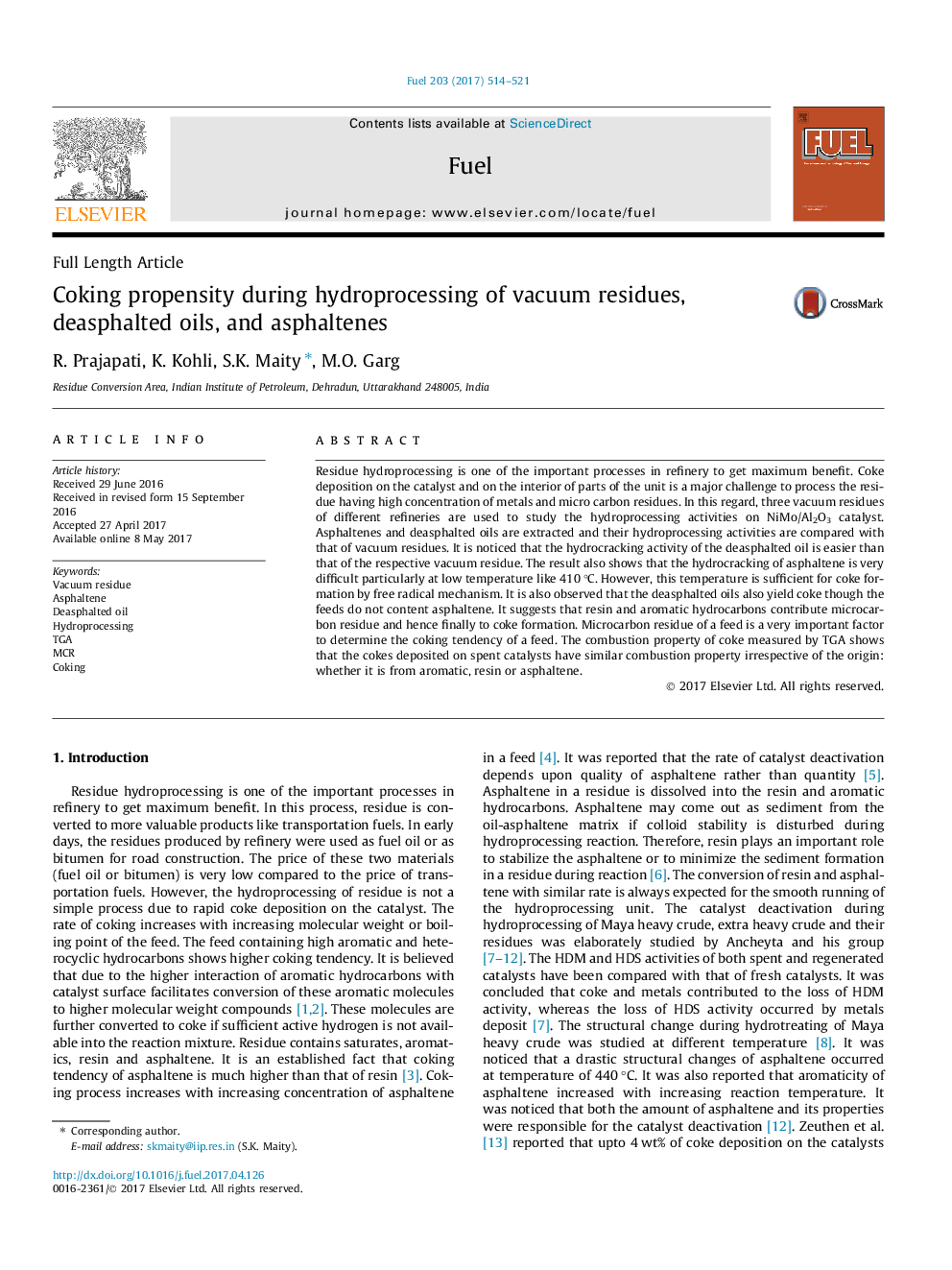| کد مقاله | کد نشریه | سال انتشار | مقاله انگلیسی | نسخه تمام متن |
|---|---|---|---|---|
| 6474381 | 1424961 | 2017 | 8 صفحه PDF | دانلود رایگان |
Residue hydroprocessing is one of the important processes in refinery to get maximum benefit. Coke deposition on the catalyst and on the interior of parts of the unit is a major challenge to process the residue having high concentration of metals and micro carbon residues. In this regard, three vacuum residues of different refineries are used to study the hydroprocessing activities on NiMo/Al2O3 catalyst. Asphaltenes and deasphalted oils are extracted and their hydroprocessing activities are compared with that of vacuum residues. It is noticed that the hydrocracking activity of the deasphalted oil is easier than that of the respective vacuum residue. The result also shows that the hydrocracking of asphaltene is very difficult particularly at low temperature like 410 °C. However, this temperature is sufficient for coke formation by free radical mechanism. It is also observed that the deasphalted oils also yield coke though the feeds do not content asphaltene. It suggests that resin and aromatic hydrocarbons contribute microcarbon residue and hence finally to coke formation. Microcarbon residue of a feed is a very important factor to determine the coking tendency of a feed. The combustion property of coke measured by TGA shows that the cokes deposited on spent catalysts have similar combustion property irrespective of the origin: whether it is from aromatic, resin or asphaltene.
Journal: Fuel - Volume 203, 1 September 2017, Pages 514-521
